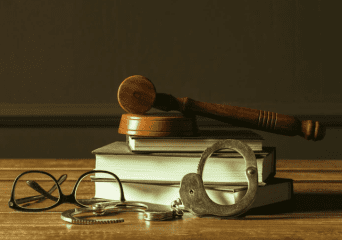
Table Of Contents
- Understanding The Crucial Role Of Criminal Lawyers
- 1. Early Case Assessment
- 2. Client Consultation And Communication
- 3. Legal Research And Analysis
- 4. Crafting A Defense Strategy
- 5. Investigative Techniques
- 6. Negotiation And Plea Bargaining
- 7. Trial Preparation And Presentation
- 8. Cross-Examination And Evidentiary Challenges
- 9. Jury Selection
- 10. Closing Arguments
- Conclusion
Building A Strong Defense: Strategies And Tactics Used By Criminal Lawyers
When the gavel falls and the courtroom hushes, a criminal lawyer’s role takes center stage in the pursuit of justice. These legal professionals are tasked with the formidable responsibility of building a strong defense to protect the rights and interests of their clients, who often find themselves entangled in the complex web of criminal allegations.
The art of constructing an effective defense strategy is a nuanced and dynamic process, drawing upon a combination of legal expertise, investigative skills, and persuasive techniques. In this article, we will delve into the world of criminal defense attorneys, uncovering the strategies and tactics they employ to secure the best possible outcomes for their clients.
Understanding The Crucial Role Of Criminal Lawyers

Before we delve into the strategies and tactics employed by a criminal lawyer, it’s essential to grasp the vital role they play in the criminal justice system. Criminal defense attorneys are champions of due process, ensuring that their clients receive a fair trial and are protected from undue harm. They serve as a bridge between the law and individuals accused of crimes, working tirelessly to safeguard the rights enshrined in the Constitution.
1. Early Case Assessment
One of the first steps in building a strong defense is conducting a thorough early case assessment. This involves a meticulous review of the evidence against the defendant. Criminal lawyers pore over police reports, witness statements, forensic reports, and any other documentation related to the case. By understanding the prosecution’s evidence, they can identify weaknesses, inconsistencies, or opportunities for dismissal or reduced charges.
2. Client Consultation And Communication
Effective communication with the client is paramount. Criminal lawyers must establish a strong attorney-client relationship based on trust and transparency. They need to understand the client’s version of events, motivations, and any extenuating circumstances that could be pivotal in building a defense. It’s crucial to encourage open dialogue, ensuring that the client feels heard and informed throughout the legal process.
3. Legal Research And Analysis
The foundation of a strong defense is an in-depth understanding of the law. Criminal Defense Attorney St Louis invests substantial time in legal research, examining statutes, case law, and legal precedents that pertain to their client’s case. This allows them to identify potential legal issues, precedents that support their argument, and innovative legal strategies that could turn the tide in their favor.
4. Crafting A Defense Strategy
With a firm grasp of the facts and the law, criminal lawyers develop a comprehensive defense strategy. This strategy outlines the key arguments, potential motions, and avenues of attack against the prosecution’s case. It also considers the best approach for presenting the client’s side of the story, whether through negotiation, pre-trial motions, or a full trial.
5. Investigative Techniques
Criminal defense attorneys often employ private investigators and expert witnesses to bolster their cases. Investigators can uncover new evidence, interview witnesses, or challenge the veracity of the prosecution’s evidence. Expert witnesses, such as forensic specialists or psychologists, can provide critical testimony that supports the defense’s arguments.
6. Negotiation And Plea Bargaining
Not all cases go to trial. In fact, a significant percentage of criminal cases are resolved through negotiation and plea bargaining. Skilled criminal lawyers know when to pursue these options and how to secure favorable deals for their clients. This might involve reducing charges, recommending rehabilitation programs, or negotiating lesser sentences.
7. Trial Preparation And Presentation
For cases that do proceed to trial, meticulous preparation is key. Criminal lawyers work closely with their clients to ensure they are prepared for every aspect of the trial process. This includes coaching on courtroom demeanor, conducting mock trials, and strategizing on how to present evidence and witnesses effectively.
8. Cross-Examination And Evidentiary Challenges
During the trial, a criminal lawyer West Palm Beach uses cross-examination as a powerful tool to challenge the prosecution’s witnesses and evidence. This involves questioning the credibility, reliability, and biases of witnesses, as well as seeking to exclude evidence that may be prejudicial or irrelevant. Effective cross-examination can create doubt in the minds of the jurors.
9. Jury Selection
The composition of the jury can significantly impact the outcome of a trial. Criminal lawyers engage in careful jury selection, seeking individuals who may be more sympathetic to their client’s case. This process, known as voir dire, allows both the prosecution and defense to choose jurors who they believe will be impartial and fair.
10. Closing Arguments
In the closing arguments, criminal lawyers bring all the pieces of their defense strategy together. They summarize the evidence, challenge the prosecution’s case, and provide a compelling narrative that supports their client’s innocence or reasonable doubt. This final opportunity to persuade the jury can be a game-changer in the courtroom.
Conclusion
Building a strong defense is a complex and multi-faceted process that demands skill, dedication, and an unwavering commitment to protecting the rights of the accused. Criminal lawyers are the guardians of these rights, employing a wide range of strategies and tactics to ensure that justice prevails. From early case assessment to courtroom advocacy and beyond, their role is pivotal in safeguarding the principles upon which the criminal justice system is built.
Read Also:






